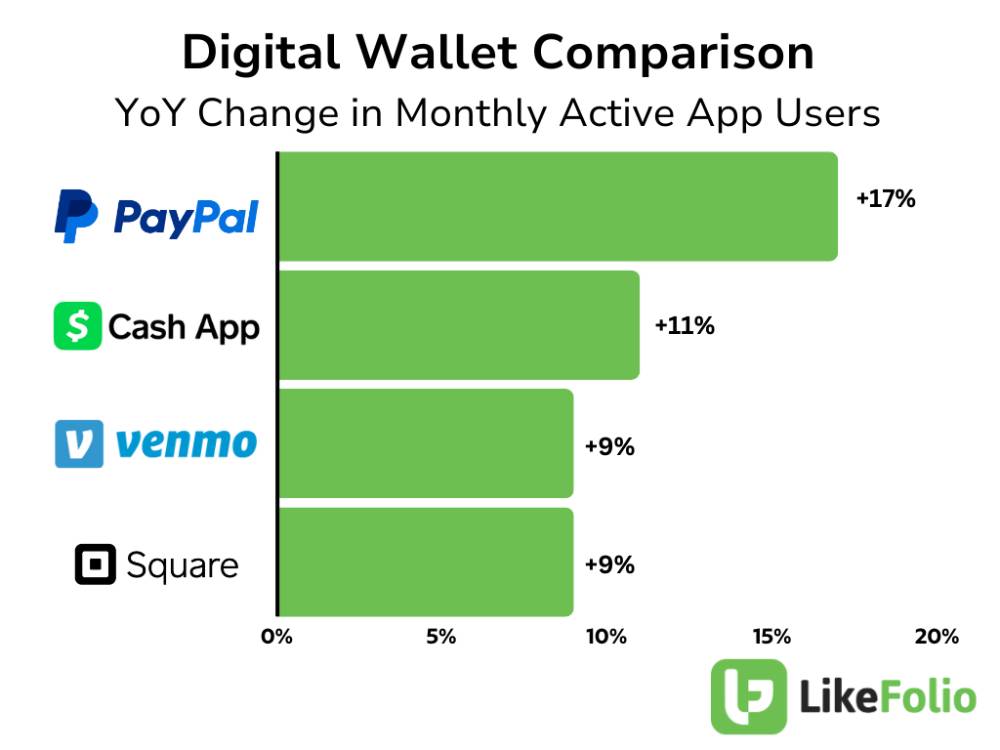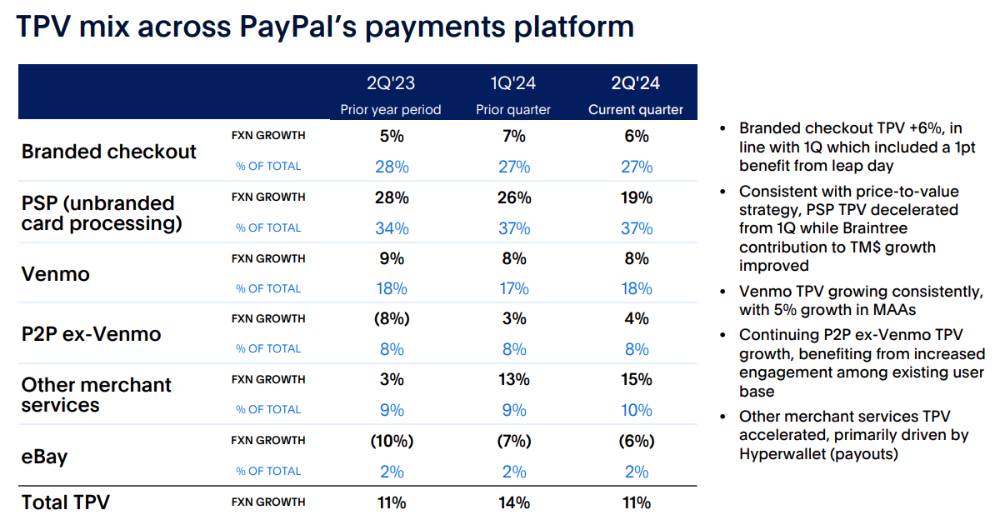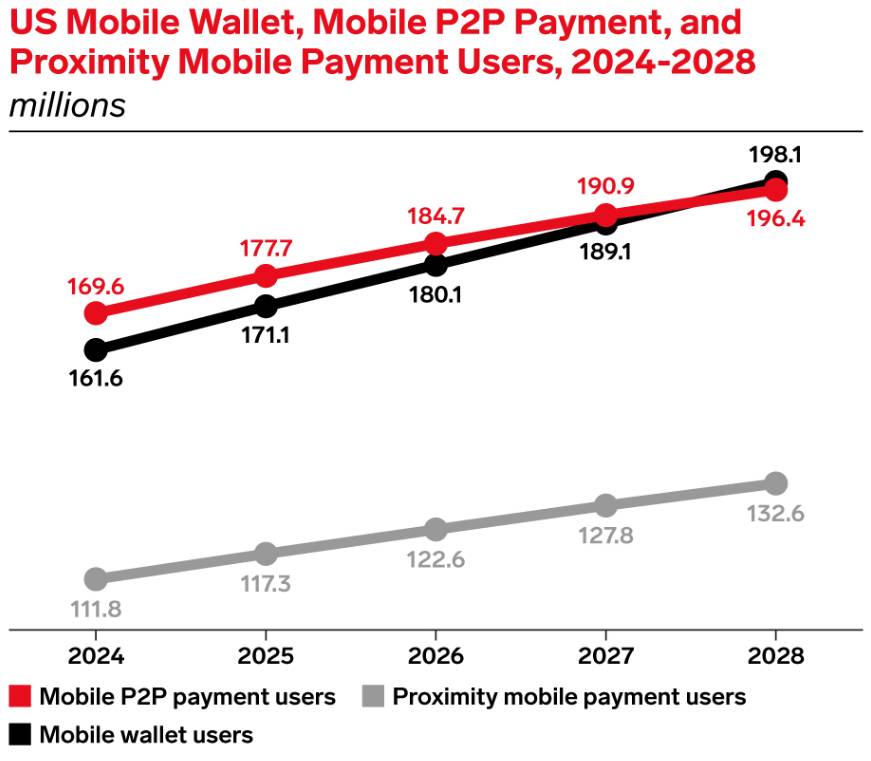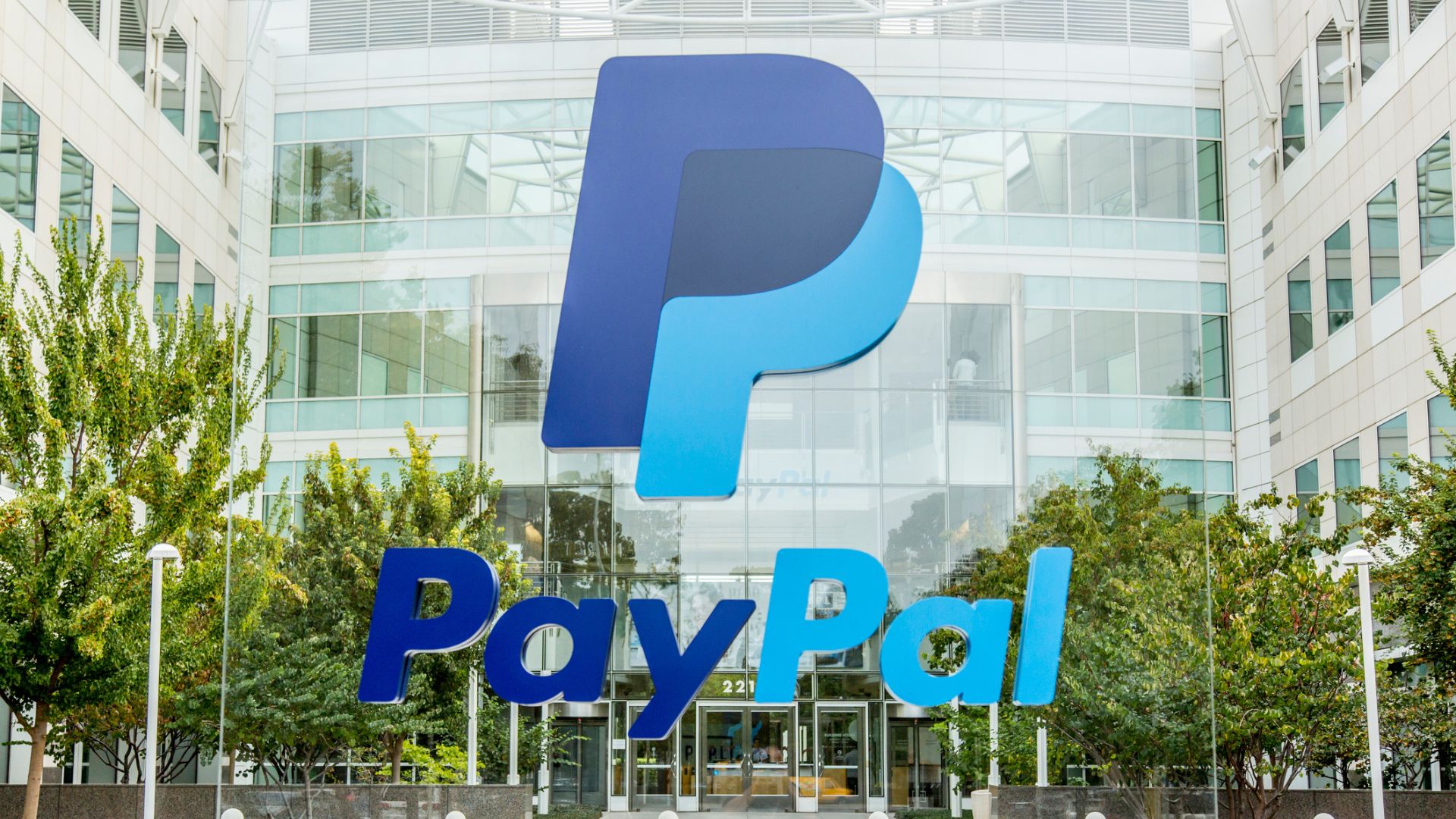I’m a sucker for a good turnaround story. After all, who doesn’t love to root for the underdog?
More than that, though, a good turnaround can come with a hefty payoff:
- Abercrombie & Fitch (ANF) transformed its toxic early 2000s reputation to become one of Wall Street’s top-performing retailers, delivering more than 800% gains over the last two years.
- Carvana (CVNA) went from meme stock to serious used car market contender, recently beating out competitor CarMax (KMX) for the industry’s top spot, while pushing 222% higher in 2024 alone.
- And Starbucks (SBUX), well, its turnaround story is only one month in, yet the stock has already surged 25% and counting.
Now there’s another turnaround story underway that deserves your attention – and this one was a long time coming…
A PayPal Turnaround Fueled by Partnerships, Fastlane Technology
When PayPal (PYPL) launched its electronic payments system in 1999, it secured a valuable first-mover advantage as one of the first true digital wallet providers.
More than half of U.S. adults report using PayPal at some point or another.
But the company struggled to regain its footing after its breakup with eBay (EBAY), and once the explosive e-commerce growth of the pandemic era cooled, the stock was all but left for dead.
PayPal’s hope for a “turnaround” came one year ago – when it brought on Alex Chriss as CEO. Since then, the company has undergone significant changes, shifting its focus to active customers while expanding margins.
When we last reported on PayPal in Derby City Daily, back in January, Chriss’s new vision hadn’t yet translated to real consumer momentum. We don’t make investment decisions based on mere speculation. We need to see the data to back it up.
Now, we have it.
LikeFolio data shows considerable app user growth for PayPal’s namesake platform – monthly active app users are up 17% year over year, nearly doubling the growth posted by competitor Square (SQ).

Venmo user growth metrics are improving, too, trending 9% higher year over year (compared to the 7% decline recorded at the end of last quarter).
PayPal Partnerships Pay Off
PayPal is REALLY cranking its partnership lever in an attempt to facilitate as many transactions as possible – on the business-to-business (B2B), business-to-consumer (B2C), and consumer-to-consumer (C2C) fronts.
Last week, Amazon.com (AMZN) announced that its payment system will be integrated into purchases made through the “Buy with Prime” program. This move seeks to increase transaction volume at high-traffic merchants using Amazon’s fulfillment network. Although currently limited to certain merchants, the collaboration positions PayPal to gain access to a broader customer base and drive revenue growth through Prime users.
Earlier in September, PayPal announced the expansion of its partnership with Shopify (SHOP), making PayPal an additional credit and debit card processor for Shopify Payments in the U.S. This integration streamlines operations for merchants by combining PayPal wallet transactions with Shopify Payments, simplifying order management, payouts, and chargebacks.
PayPal also recently expanded its partnership with Fiserv (FI), the company behind many of the payment tech solutions that businesses use to handle transactions both online and in stores. With this deal, Fiserv’s merchant clients can now easily add PayPal, Venmo, and PayPal’s Fastlane checkout, which speeds up guest checkouts by letting people buy with just one click.
PayPal Fastlane users are converting 80% of the time, with conversion rates 50% higher than usual and a 32% faster checkout, making it a big win for businesses looking to boost sales.
PayPal’s Fastlane will also be available for U.S. enterprise and marketplace users of the Dutch credit card services platform Adyen (ADYEY), with plans to extend this offering globally in the future.
An already-existing partnership with Meta Platforms (META) allows PayPal to get a cut of transactions on the largest social platform in the world. For reference, Meta pays out creators and developers using PayPal’s Hyperwallet service; it also uses PayPal-owned Braintree for credit card processing.
At the end of July, PayPal released more positive news:
Raised Profit Forecast: PayPal increased its adjusted profit growth projection for 2024 to a “low to mid-teens percentage,” up from the earlier forecast of “mid-to-high single digits,” driven by resilient consumer spending and back-to-school/holiday shopping expectations.
Cost-Cutting and Margin Improvement: Under CEO Alex Chriss, PayPal has focused on improving operating margins by restructuring and cutting costs, including a 9% reduction in its workforce. Operating margins improved by 231 basis points, reaching 18.5% in the second quarter.
Transaction and Revenue Growth: Total payment volumes rose 11% to $416.81 billion in the second quarter, while revenue grew 9% to $7.89 billion. PayPal’s branded checkout, Braintree, and Venmo contributed to an 8% increase in transaction margin dollars, the highest growth rate since 2021.
And for once, it’s NOT Venmo alone driving growth…

Venmo total payment volume (TPV) grew by 8% year over year in the second quarter. In contrast, PayPal’s unbranded card processing grew by 19% year over year.
Tailwinds Tipping in PayPal’s Favor
On a macro level, mobile wallet users are expected to grow considerably over the next four years, exceeding 198 million by 2028.

I’m sure we can all relate to this – how nice is it to complete a transaction on your phone without ever reaching for your wallet? Freeing.
From a trading perspective, PayPal certainly has a lot of momentum. The stock is up nearly 30% year to date (YTD) after struggling through several years of a post-COVID hangover.
As you saw, LikeFolio data finally reveals room for optimism, driven by a more engaged userbase and long-term consumer shift to digital wallets. Looking ahead, we’ll be monitoring PayPal Fastlane mentions, especially as holiday shopping picks up.
Bottom line: We wouldn’t be surprised to see the stock push higher from here – it still has a considerable way to go before getting anywhere close to 2021 levels.
Until next time,

Andy Swan
Founder, LikeFolio
